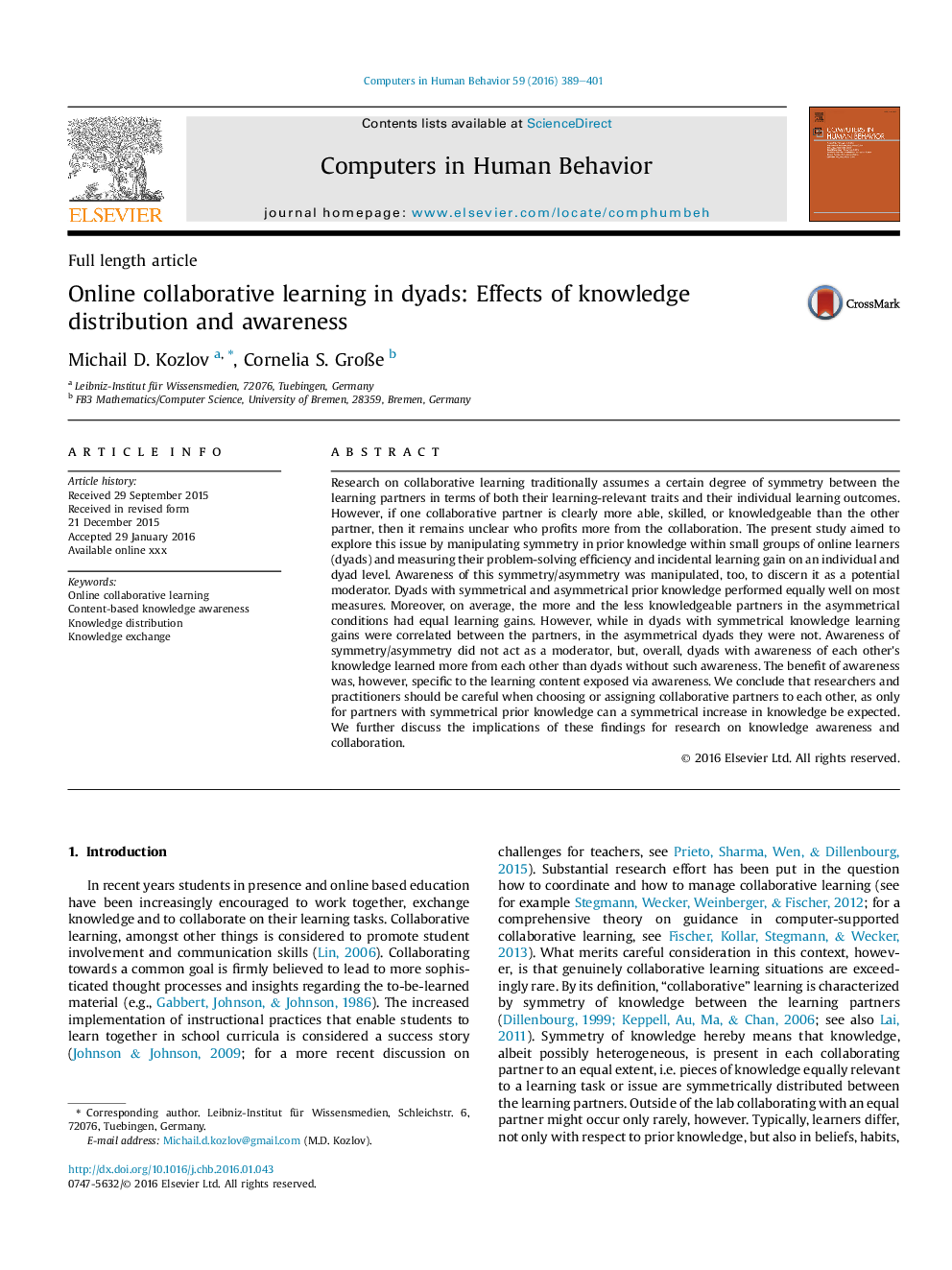| کد مقاله | کد نشریه | سال انتشار | مقاله انگلیسی | نسخه تمام متن |
|---|---|---|---|---|
| 6837482 | 618428 | 2016 | 13 صفحه PDF | دانلود رایگان |
عنوان انگلیسی مقاله ISI
Online collaborative learning in dyads: Effects of knowledge distribution and awareness
ترجمه فارسی عنوان
یادگیری مشارکتی آنلاین در دیاد: تاثیر توزیع دانش و آگاهی
دانلود مقاله + سفارش ترجمه
دانلود مقاله ISI انگلیسی
رایگان برای ایرانیان
کلمات کلیدی
یادگیری مشارکتی آنلاین، آگاهی دانش مبتنی بر محتوا، توزیع دانش، مبادله دانش،
موضوعات مرتبط
مهندسی و علوم پایه
مهندسی کامپیوتر
نرم افزارهای علوم کامپیوتر
چکیده انگلیسی
Research on collaborative learning traditionally assumes a certain degree of symmetry between the learning partners in terms of both their learning-relevant traits and their individual learning outcomes. However, if one collaborative partner is clearly more able, skilled, or knowledgeable than the other partner, then it remains unclear who profits more from the collaboration. The present study aimed to explore this issue by manipulating symmetry in prior knowledge within small groups of online learners (dyads) and measuring their problem-solving efficiency and incidental learning gain on an individual and dyad level. Awareness of this symmetry/asymmetry was manipulated, too, to discern it as a potential moderator. Dyads with symmetrical and asymmetrical prior knowledge performed equally well on most measures. Moreover, on average, the more and the less knowledgeable partners in the asymmetrical conditions had equal learning gains. However, while in dyads with symmetrical knowledge learning gains were correlated between the partners, in the asymmetrical dyads they were not. Awareness of symmetry/asymmetry did not act as a moderator, but, overall, dyads with awareness of each other's knowledge learned more from each other than dyads without such awareness. The benefit of awareness was, however, specific to the learning content exposed via awareness. We conclude that researchers and practitioners should be careful when choosing or assigning collaborative partners to each other, as only for partners with symmetrical prior knowledge can a symmetrical increase in knowledge be expected. We further discuss the implications of these findings for research on knowledge awareness and collaboration.
ناشر
Database: Elsevier - ScienceDirect (ساینس دایرکت)
Journal: Computers in Human Behavior - Volume 59, June 2016, Pages 389-401
Journal: Computers in Human Behavior - Volume 59, June 2016, Pages 389-401
نویسندگان
Michail D. Kozlov, Cornelia S. GroÃe,
